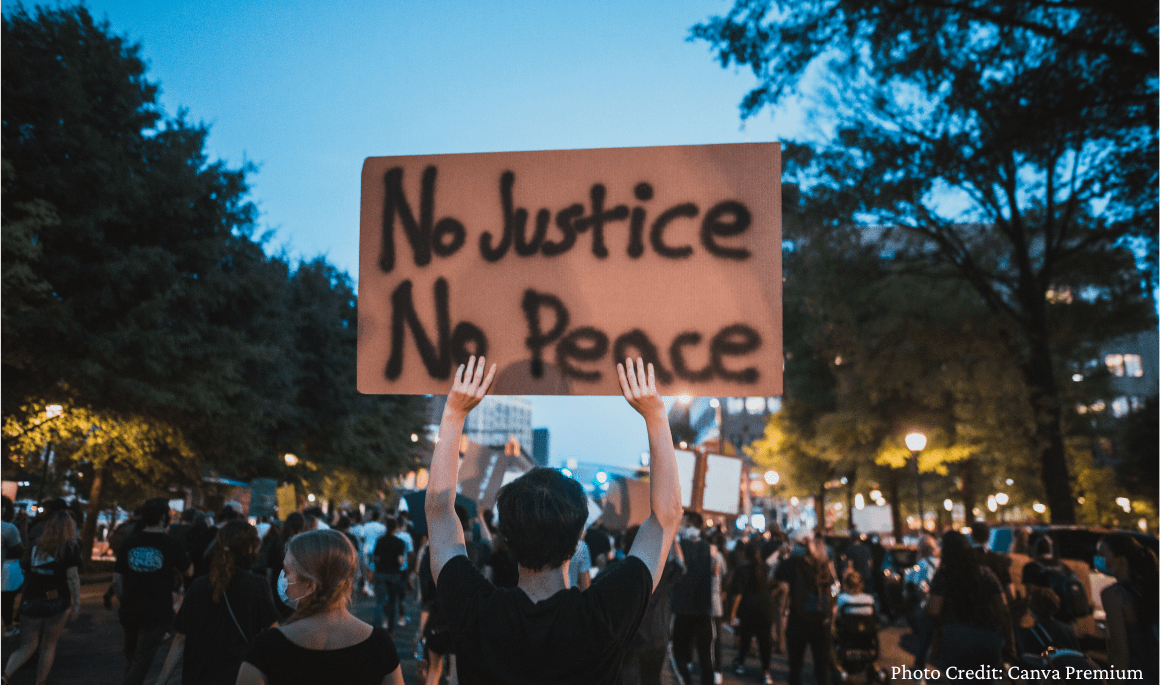- Norwich Blogs
- Blogs
- The student protesters on Gaza are not only right, they’re winning
The student protesters on Gaza are not only right, they’re winning
By Dr. Richard Jackson
Disclaimer: These opinion pieces represent the authors’ personal views, and do not necessarily reflect the official policies or positions of Norwich University or PAWC.

The small student Gaza protest movement which began at Columbia University in April 2024 has now grown into a global movement. Demanding that universities divest from companies supporting Israeli military attacks on Gaza and that they take a stand against the ‘scolasticide’
From one perspective, this explosion of protest is extraordinary. Pro-Palestine student activism has existed for decades on university campuses around the world. However, in the United States, the dominant public narrative about the Arab-Israeli conflict in Western countries which ascribes genocidal intentions to the Palestinians and Israel’s right to security, along with fears of being labelled anti-Semitic and the influence of AIPAC, the American Israel Public Affairs Committee, [iv] have made the movement fairly small and marginalized. However, following the devastating impact of the Israeli assault on Gaza after October 7, 2023, and the involvement of many leading Jewish groups and individuals in the student protests, these previous bulwarks against criticism of Israel have been severely curtailed and no longer pose a serious obstacle to public expression of pro-Palestine sentiment – as seen in the actions of the students, growing public criticism of Israel from an ever-growing number of public figures, and the failure of pro-Israel groups to sanction anti-Zionist criticism as a form of anti-Semitism.[v]
On the other hand, from an historical perspective, the student protests are perfectly unremarkable and were entirely predictable. After all, university students have a long history of leading protests about issues of public policy, from demanding an end to segregation in the United States, to protesting US involvement in the Vietnam war, the CIA-backed coup in Chile, US support for apartheid South Africa, the invasion of Iraq, torture in Guantanamo, climate change, racial justice and more.
The reason for this sustained record of progressive activism is obvious: a key role of any university is to be the critic and conscience of society and consequently, universities teach their students to engage in ethically informed critical thinking about major issues that affect society. The combination of critical thinking and youthful optimism can provide a potent ignition for protest, particularly when the power holders in society refuse to act in support of progressive change. In this sense, students are a kind of social barometer for problems and injustices that society needs to address.
Interestingly, in an ironic repetition of history which willfully ignores what happened in previous student protests, a great many university administrators, including Columbia, Yale, NYU, Emerson and others, often in response to their donors and pressures from the political establishment, have responded to the students with violent suppression, intimidation, threats and obstruction.[vi] More widely, and following previous patterns, the student protests have been vilified and condemned widely by politicians, the media, pundits and much of the general public.
As a scholar who has studied – and participated in – protests and resistance against social injustice for the past three decades, it is clear to me that the students are both right to be protesting, and they are winning, even if the final outcome of the campaign is not yet clear or certain. A large and growing list of universities have agreed to the student demands to cut ties with Israel and disinvest from Israeli companies.[vii] As a consequence, there is no doubt that as in every previous case, history will judge them kindly. I fully expect that they will one day have plaques and monuments raised to them which will stand next to those who have been recognized in previous historical protest movements.
Although some critics – politicians like Hillary Clinton,[viii] for example – have tried to suggest that the students are naïve and have no real understanding of the situation, their analysis of the rights and wrongs of the situation is incisive, factual and reasonable, and accords with an ever-growing consensus among academics, research institutes, NGOs, international organizations and international lawyers. In fact, many student groups express a sophisticated grasp of how the attack on Gaza is entwined with the larger issue of settler colonialism and is connected to other decolonial struggles around the world. Student protesters at the LSE wrote a 114 page report titled ‘Assets in Apartheid’,[ix] for example, which among others, provides a rigorous analysis of Israeli settler colonialism, the connection to climate change and the university’s history of involvement on the side of Israel.
Most importantly, the student protests are winning. As noted, they have succeeded in not only globalizing the movement, but also widening the movement beyond universities and students, creating broader a set of alliances and coalitions between social forces. Historically, a broadly-based social movement is a proven element of protest success, and it appears to be reaching a critical mass where it is beginning to exert real pressure for change. A growing number of universities have agreed to divest or boycott Israeli institutions, and many more are seriously considering it.
Further, the movement is proving to be creative and innovative in its tactics, and despite frequent accusations of instances of violent antisemitism, is maintaining a remarkable degree of nonviolent discipline. Media coverage of brutal police suppression of students – over 2,500 students have been arrested so far – is backfiring and only gaining the movement further support.
At the same time that the student-led campaign is garnering increased mainstream support across Western states that have until now been staunch supporters of Israel, Israel’s failure[x] to achieve any of its strategic objectives[xi] in Gaza is becoming more apparent. Israel also faces several other related challenges: it is facing growing international opposition and sanction, it is increasingly isolated diplomatically and culturally, it is losing the narrative battle over antisemitism, it is suffering painful economic losses [xii], and internal divisions in Israeli society and politics [xiii] about the war are spilling over.[xiv] In some important respects, the current moment is reminiscent of the late 1980s when the campaign against apartheid South Africa was at its zenith, just before the regime agreed to transform.
In combination, these factors show that the student protests are a key part of a global movement that is making real headway and will, in the long term, generate real political change. The protesters are proving the labor union advocate, Nicholas Klein’s adage that “First they ignore you. Then they ridicule you. And then they attack you and want to burn you. And then they build monuments to you.” I, for one, am looking forward to the day when I will teach my students about how the student protests of 2024 helped to build pressure for the establishment of equal human rights for all and a just peace in Palestine. And of course, I look forward to the unveiling of the plaque the university will inevitably erect to their courageous principled action.
Dr. Richard Jackson holds the Leading Thinker Chair in Peace and Conflict Studies at the University of Otago, New Zealand. He is the editor-in-chief of the journal, Critical Studies on Terrorism, and has published 15 books and more than 100 papers on issues related to terrorism, war, political violence, nonviolent resistance, pacifism, conflict resolution and military abolition.
[i] https://www.ohchr.org/en/press-releases/2024/04/un-experts-deeply-concerned-over-scholasticide-gaza.
[ii] https://www.aljazeera.com/news/2024/4/29/mapping-pro-palestine-campus-protests-around-the-world
[iii] https://jewishchronicle.timesofisrael.com/presbyterian-church-rejects-christian-zionism-divests-from-israel-bonds/
[iv] https://www.trtworld.com/magazine/barack-obama-opens-up-on-aipac-influence-during-his-presidency-13115655.
[v] https://www.theguardian.com/education/2024/feb/05/uk-professor-suffered-discrimination-due-to-anti-zionist-beliefs-tribunal-rules.
[vii] https://www.aljazeera.com/news/2024/5/7/pro-palestine-protests-how-some-universities-reached-deals-with-students.
[viii] https://www.timesofisrael.com/hillary-clinton-anti-israel-protesters-dont-know-very-much-about-the-middle-east/.
[xi] https://www.theguardian.com/commentisfree/2023/dec/21/israel-losing-war-against-hamas-netanyahu-idf.
[xii] https://www.timesofisrael.com/war-battered-economy-plunged-almost-20-marking-sharpest-contraction-since-pandemic/,



